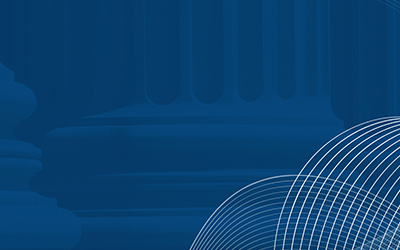The Department of Labor (DOL) announced that it reached what may be the first settlement agreement related to the enforcement of the Mental Health Parity and Addiction Equity Act (MHPAEA). The DOL and New York Attorney General (NYAG) settled with United Behavioral Health and United Healthcare Insurance Co. (United) following litigation and investigation into MHPAEA violations. According to the settlement, United must pay affected participants and beneficiaries, pay penalties and take corrective actions.
The Employee Benefits Security Administration (EBSA) investigates alleged violations of the MHPAEA, including those alleged in Walsh v. United Behavioral Health and UnitedHealthcare Insurance.
The MHPAEA requires group health plans (GHPs), whether fully insured or self-funded, to provide the same level of benefits to participants for mental health and substance use disorders (MH/SUD) as medical and surgical care. When plans do not meet this requirement, it is referred to as a failure to meet mental health parity (MHP). EBSA’s investigations found that two separate United practices violated MHP requirements. First, United set policies and procedures that reimbursed out-of-network mental health services more restrictively than medical and surgical benefits. Second, United relied on an algorithm that imposed a stringent concurrent review program that limited outpatient mental health benefits more broadly than those for medical and surgical benefits. EBSA found that these violations go as far back as 2013.
The settlement agreement orders United to make payments and take action to correct its parity violations.
The United companies involved in the suit must pay affected participants and beneficiaries a total of $15.6 million. Additionally, they must pay penalties totaling $2,084,249 to the DOL. Finally, the settlement requires United to cease the violations, improve its disclosures about MH/SUD benefits and commit to future MHPAEA compliance. EBSA states that the settlement agreement is a first, but EBSA conducts MHP investigations regularly.
EBSA releases an annual fiscal year (FY) MHPAEA Enforcement Fact Sheets detailing its FY investigations on its Mental Health and Substance Use Disorder Parity page.
EBSA conducts investigations when it receives inquiries from participants who believe their plan improperly denies their benefit claims. According to the latest Fact Sheet, the FY 2020 MHPAEA Enforcement Fact Sheet, EBSA investigated and closed 180 health plans during FY 2020. In four of those investigations, EBSA cited eight parity violations. Four investigations where EBSA found violations involved self-funded group health plans (GHPs). The cited violations included four quantitative treatment limitation failures, two nonquantitative treatment limitation (NQTL) failures, and two failures to offer MH/SUD benefits in all classifications.
EBSA must increase its enforcement of mental health parity due to the new Consolidated Appropriations Act, 2021 (CAA) NQTLs requirements.
NQTLs are benefit limits that a GHP imposes on items and services that are not a precisely quantifiable (i.e., monetary or visit) limit. The DOL’s NQTL Noncompliance Warning Signs gives examples of NQTLs, which include:
- Preauthorization requirements,
- Fail-first/step therapy protocols,
- Probability of improvement evidence,
- Requirements of written treatment plans and
- Refusal policies like patient non-compliance, residential treatment limits, geographical limitations, and licensure requirements.
The CAA amends the Employee Retirement Income Security Act (ERISA), requiring GHPs to formally analyze their compliance with the MHPAEA requirements related to NQTLs. Under the new MHPAEA rules created by the CAA, GHPs must document and make their analysis available to EBSA upon request. It also mandates that the departments request and analyze the MHP analysis a copy of at least 20 GHPs annually.
The DOL has recently released a Self-Compliance Tool that a plan administrator can evaluate whether their plan complies with the MHPAEA’s parity requirements. The EBSA page also links the related regulations, guidance on MHP, and information publications and videos. Self-insured plan sponsors should visit the EBSA’s site to ensure that their plan is compliant, especially regarding the new MHPAEA analysis requirements.
EPIC offers this material for general information only. EPIC does not intend this material to be, nor may any person receiving this information construe or rely on this material as, tax or legal advice. The matters addressed in this document and any related discussions or correspondence should be reviewed and discussed with legal counsel prior to acting or relying on these materials.
Sign up for our Compliance Matters Newsletter
You’ll receive our monthly newsletter, as well as special compliance alerts and invitations to our compliance webinars
Related Content
Products
Employee Benefits Consulting
Our dedicated EPIC benefits team is focused on delivering better outcomes – to both your benefits program ...
Products
Compliance
Our expert Compliance team provides comprehensive consulting services and in-depth education regarding the ...
Products
HR Technology Solutions
From advising startups on how to build a solid Human Resources (HR) infrastructure, to consulting with ...



